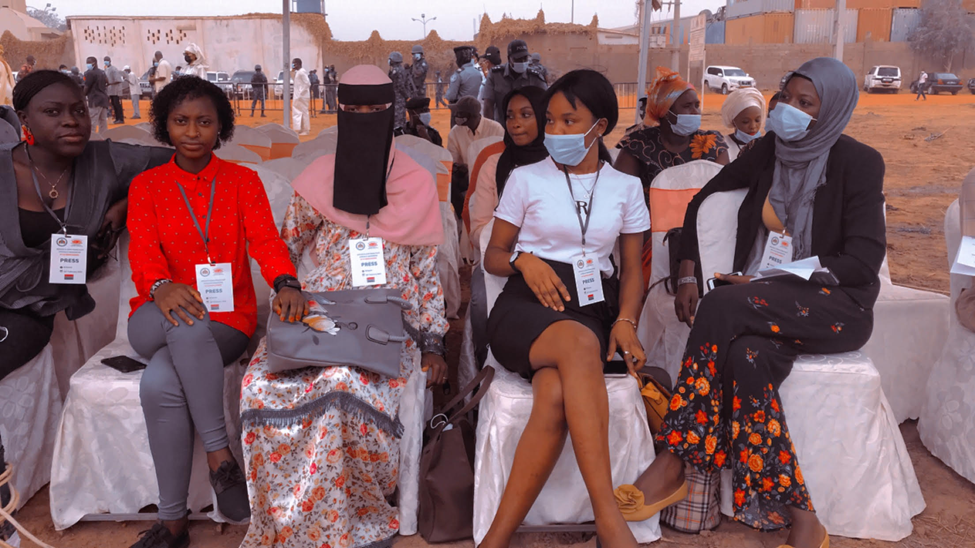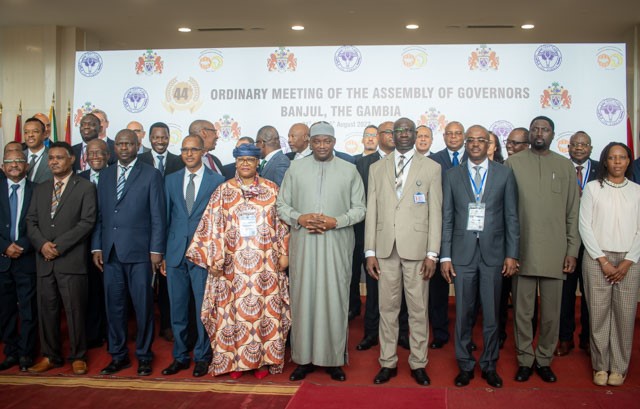By: Mariama Njie
The Gambian Female journalists have been complaining about how coronavirus pandemic has massively crippled their financial income as a result of these restrictions. Some of them also said they have not received any monetary support from their media houses from the government 15-million-dalasi package to the media.
Aramata Jatta, a female reporter said: “I did not benefit from the covid fund and I am not aware of my media house receiving a grant and was told the money will be used for productions.”
Kaddy Jawo, a reporter with the Chronicle said “During the lockdown it was so difficult for me to get sources for my stories. During that time, I depend entirely on WhatsApp responses and sometimes I do not get what I want from my sources, so I have to try someone else or I do not publish the story at the end of the day because it is incomplete.”
Meanwhile, Ndey Ceesay, reporter for Eye Africa TV, said: “the coronavirus pandemic has affected her in all aspects, especially her job as a reporter.”
“As a journalist is it always more important to have a face-to-face interview with your sources than doing it online,” she said, adding that “I did not benefit from the government package aid given to our media house.”
Fatou Dem, reporter with The Point Newspaper, said during the coronavirus lockdown that she used to get a few stories to publish to get money.
“Many were not granting interviews to journalists because they were with the fear of being contracted the disease by journalists. During that time, I got stranded and could not do so many things for myself; rather, I depend entirely on her family for support,” she said.
She added: “before the pandemic if an institution has to organize an event almost all the media houses will be invited but when the pandemic came many of these institutions will invite specific journalists to cover the event, which she called discrimination.”
Mariama Cham, Vice President of Young Journalist Association said the COVID-19 has mentally, socially and psychology affected female journalists in the sense that it was really challenging to do their work as expected.
“Most of us depend on our work to feed ourselves and take care of our families during the crisis but when institutions lay off some staff, it actually disturbs most of us who depend on the job to earn a living,” she added.
Meanwhile, an Auditor General for Young Journalist Association, Awa Touray, blamed media houses for neglecting freelance journalists’ particularly female freelance reporters during the pandemic restrictions.
“Media houses tended to focus more on their staff during that time or only when the content was very interesting and worth publishing, many female journalists’ stories were not published simply because the stories were not linked to coronavirus,” she said.
“Pandemic also affected some female journalists who got contracted during their line of duty. This has put many lives at risk. This has hampered the work of female journalists due to the fear of contracting the disease,” Muhammed MS Bah, Vice President of Gambia Press Union said
He added: “also the Press Union through its partners has secured more than 30,000 facemasks which were distributed to media houses to be given to journalists for their protection against the novel coronavirus and their hundreds of masks at Union for freelance Journalists especially women journalists to use for their work.”
Ade Drummy, Head of News QTV said: “It impacted greatly on the news that we put out every day because before we used to put 45 minutes news and all of a sudden it was 30 minutes due to that we could not have normal cover.
It could be remembered that scores of editors of Gambian newspapers earlier reacted to the impact of covid-19 on the media and media workers expressing the magnitude of damage the pandemic caused to the sector.
Sam Sarr, Editor-in- Chief of Foroyaa Newspaper, said they do face challenges when it comes to paying their staff because at this moment incomes are affected, expenditure incurs is also affected. Noting that, Incomes are derived from sales and advertisements. Now, he added, sales have dropped because many people don’t go out so they don’t buy Newspaper like before and some businesses have dropped, too, together with some NGO activities which also affects adverts.
Also, The Point newspaper Editor , Bekai Njie, expressed that the coronavirus also known as Covid-19 has adverse effect on the print media one way or the other.
“One thing that can be easily notice is that we e are not producing the same number of copies like before and the limited copies we produce still have returns, it’s like things are not normal and if we talk to vendors, they tell us that they have limited sales compare to before,” he said.




